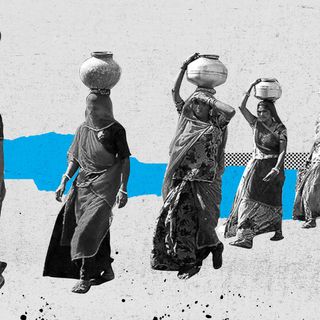Nineteen-year-olds in Bangladesh are, on average, 20 centimeters shorter than their peers in the Netherlands, due to poor nutrition during their school years, concludes a new study examining children’s growth around the world.
Imperial College London researchers evaluated 65 million children between five and 19 years of age, across 193 countries, to determine that the quality of people’s diet is one of the biggest factors influencing height and weight around the world.
For example, a 19-year-old girl in Bangladesh, one of the shortest countries in the world, is on average as tall as an 11-year-old girl in the Netherlands, one of the tallest countries. This shows an eight-year age gap for proportional height, say researchers behind the study published in The Lancet. Other shortest nations are located in South Asia, Southeast Asia, East Africa, and Latin America; the tallest countries are in Europe.
The study also found India has one of the lowest body mass index averages in the world, indicating children of any given height do not have a correspondingly healthy weight.
Related on The Swaddle:
Progress Made to Eradicate Malnutrition, Stunting Is Now Being Reversed by Climate Change‑Related Droughts
This finding tracks against earlier studies that show India has some of the least healthy packaged foods in the world, harbors a third of the world’s stunted children, and is fighting one of the world’s worst malnutrition crises.
“Our findings should motivate policies that increase the availability and reduce the cost of nutritious foods, as this will help children grow taller without gaining excessive weight for their height. These initiatives include food vouchers towards nutritious foods for low-income families, and free healthy school meal programs, which are particularly under threat during the pandemic,” lead author of the study, Dr. Andrea Rodriguez Martinez, of Imperial College London’s School of Public Health, said in a statement. “These actions would enable children to grow taller without gaining excessive weight, with lifelong benefits for their health and wellbeing.”




